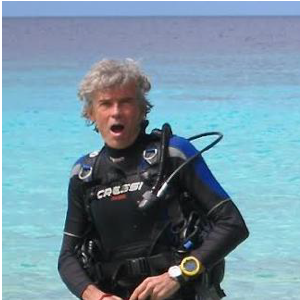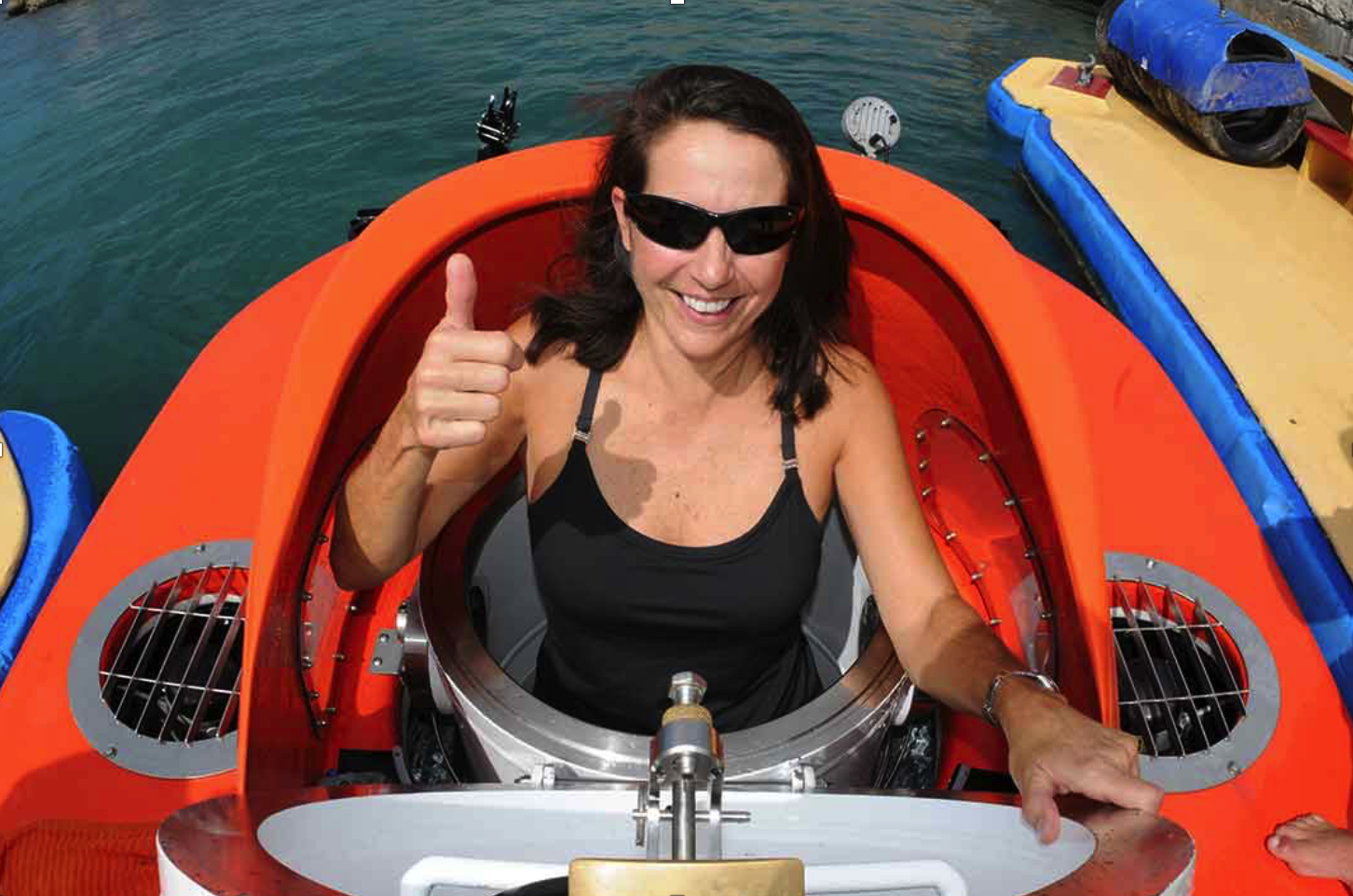AT THE EDGE OF LIGHT
–13’ film–
Now available FOR FREE on Youtube
Please watch this short documentary and share with friends!
CALL TO ACTION
Deep-sea reefs are unique ecosystems with potentially thousands of species yet to be discovered.
With shallow reefs under intense threats, scientists acknowledge that the lesser-studied deep reefs are also under pressure.
Deep reef research and follow up expeditions are essential to understand these complex ecosystems, their role in ocean health and resilience, and to develop strategies to ensure their conservation or restoration.
AT THE EDGE OF LIGHT
Synopsis
AT THE EDGE OF LIGHT (13’ short-documentary) covers the Pax Arctica Coral Reef Expedition of Aug/Sep2018 in Klein Curacao. Produced by Sagax Entertainment and directed by Fabiano D’Amato and James Nikitine this film covers the largely unexplored deep ocean reefs surrounding the uninhabited island of Klein Curaçao which serve as biodiversity hotbeds and could hold the answers to many unanswered scientific questions.
Reef ecosystems around the world are in decline and threatened from global warming leading to mass coral bleaching, ocean acidification, overfishing and other local impacts. Marine scientists from Scripps Institution of Oceanography, Smithsonian’s National Museum for Natural History, and Naturalis Biodiversity Center lead a scientific mission using a state-of-the-art manned submersible, the Curasub, to explore the islands’ uncharted depths of up to 1000ft and collect baseline observations to inform continued research.
AT THE EDGE OF LIGHT provides a better understanding of the lesser studied deep-sea reefs and their unique ecosystems with hundreds and maybe even thousands of species yet to be discovered.
This expedition was organized by Uncharted Blue, a non-profit organization connecting adventure seekers with world-renowned scientists and marine technology to fuel exploration and conservation.
Luc Hardy has been invited by David Kline (Scripps Institution of Oceanography) to sponsor this Coral Reef expedition in Curacao in August/September 2018.
Reef ecosystems around the world are in decline and threatened from global warming leading to mass coral bleaching, ocean acidification, overfishing and other local impacts.
Luc Hardy will participate in this expedition as a Sponsoring Explorer.
David Kline, PhD, a Senior Coral Reef Ecology scientist at Scripps Institution of Oceanography will be the lead scientist of the expedition.
Sagax Entertainment will produce a documentary of the expedition to be released later in 2018 (temporary title: "Curacao Deep Secrets”)
ABOUT
The largely unexplored deep ocean reefs surrounding the uninhabited island of Klein Curaçao serve as biodiversity hotbeds and could hold the answers to many unanswered scientific questions. Marine scientists from Scripps Institution of Oceanography, Smithsonian’s National Museum for Natural History, and Naturalis Biodiversity Center will lead scientific missions using a state-of-the art manned submersible, the Curasub, to explore the islands’ uncharted depths of up to 1000ft and collect baseline observations to inform continued research.
This will be the inaugural expedition in a series led by Uncharted Blue, a new organization that pairs adventure seekers with world renowned scientists and marine technology to fuel exploration of uncharted ocean destinations. The expedition will be thoroughly documented to support promotion of increased public engagement in and funding for future research in the area.
RESEARCH PLAN
· (Dr. Kline) Study the health and diversity of the shallow and mesophotic coral reefs of Curacao to try and develop new strategies to protect and restore both the shallow and deeper coral reefs. Determine potential sites for deployment of custom underwater time machine or the FUTURE FOCE to inform creation of future predicted climate conditions on the reef and determine how the coral ecosystems will respond. Explore use of FUTURE FOCE to determine which corals will be best suited for reef restoration in a high CO2 future. Begin planning to develop a DEEP FOCE for testing and improving restoration strategies for mesophotic coral reefs.
· (Dr. Baldwin) Study diversity and eco-evolution of Caribbean reef fishes through integrative genetic and morphological investigation. Continue Deep Reef Observation Project (DROP), a marine research initiative that aims to explore and monitor long-term changes in poorly studied tropical deep-reef ecosystems.
· (Dr. de Voogd) Study relationship between deep sponges and their associated microbial communities, and how this interaction contributes to reef health and discovery of nature-inspired therapeutics
THE TEAM
LUC HARDY
EXPLORER & ENTREPRENEUR
Luc is an entrepreneur, veteran adventurer, environmental advocate, author, member of the Explorers Club of New York. Luc graduated from Ecole Centrale Paris with an engineering degree. He is president of Sagax, a US-based investment and management advisory firm. His curiosity for the world and his love of adventure stem from his origins in Brittany.
JAMES A. NIKITINE
FILMMAKER
James is the Director and Co-Founder of Manaia Productions, specializing in strategic communications and film production. He has 7+ years experience in digital communications, project management, consultancy services, video production, NGOs, and marine conservation tourism.
ADRIAAN 'DUTCH' SCHRIER
R/V CHAPMAN & CURASUB OWNER
Dutch is the founder, developer and co-owner of the Curacao Sea Aquarium. He opened the aquarium in 1984 together with his partner, Rudy Pizziolo. He was also the driving force behind the opening of the Dolphin Academy, the Dolphin Therapy Center and the Dolphin Suites Hotel and the Substation Curacao. Acquiring the Curasub submarine and the research vessel ‘Chapman’.
DIVID KLINE
SCIENTIST
Dr. Kline is an Associate Research Biologist at Scripps Institution of Oceanography, University of California, San Diego. He is a coral reef ecologist who studies the fate of coral reefs in a high carbon dioxide future on molecular to ecosystem scales.
DR. CAROLE BALDWIN
SCIENTIST
Dr. Baldwin is Curator of Fishes and Chair of the Department of Vertebrate Zoology at Smithsonian and director of the museum’s Deep Reef Observation Project (DROP), a marine research initiative that aims to explore and monitor long-term changes in poorly studied tropical deep-reef ecosystems.
FABIANO D’AMATO
FILMMAKER
Fabiano is the Director and Co-Founder of Manaia Productions, After studying film in London, he embarked on environmental and social film projects, from the depths of the Amazon to the high seas of the Indian Ocean. He never feel more at home than on the road, trying to capture the mad beauty and beautiful madness of our world, and the need to protect it all.
DR. NICOLE DE VOOGD
SCIENTIST
Dr. de Voogd is a senior researcher at Naturalis Biodiversity Center and Professor at the University of Leiden. She is a marine ecologist and taxonomist who studies the important role sponges play in reef systems.
TAMARA SCHWENT
EXPEDITION LEAD
Tamara earned her MAS in Marine Biodiversity and Conservation from Scripps Institution of Oceanography and Is Director of Operations at marine biotech Sirenas. Tamara merges her skillsets in field science operations with sound business objectives to advance Uncharted Blue’s mission.
KRISTIN METHLAGL,
EXPEDITION LEAD
Kristin earned her MAS in Marine Biodiversity and Conservation from Scripps Institution of
Oceanography and has worked as a science strategist and liaison for NOAA and Scripps. She merges her skillsets in market strategy and scientific research planning and advocacy to advance Uncharted Blue’s mission.














